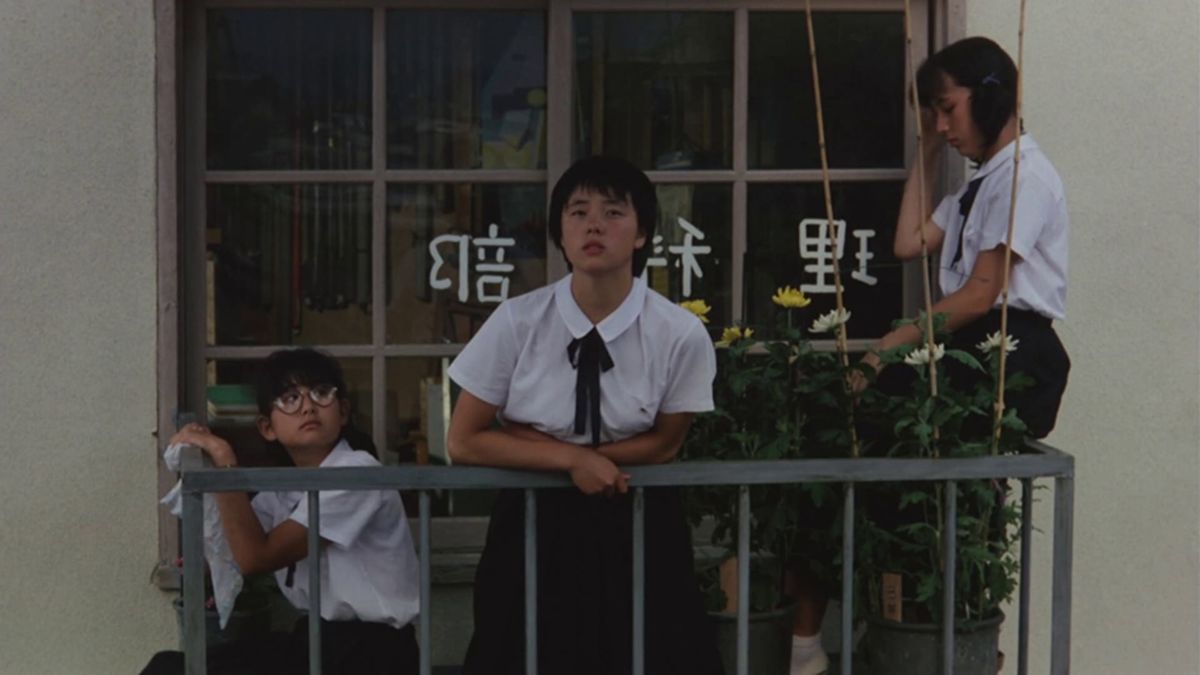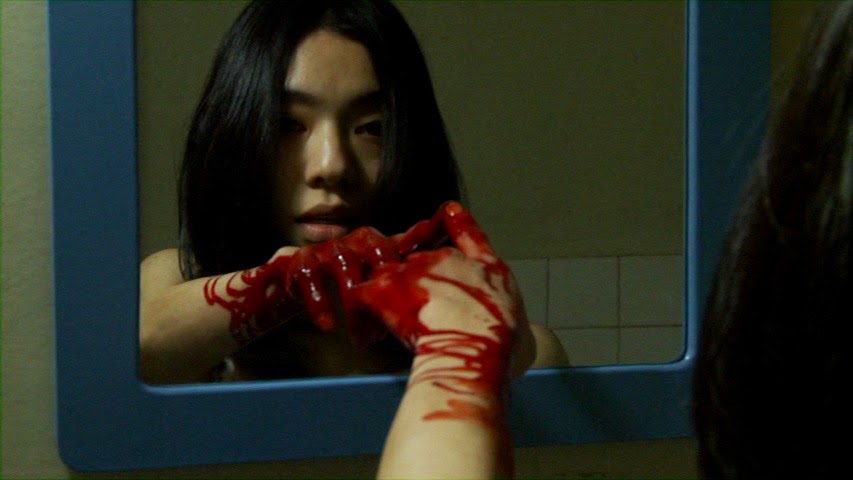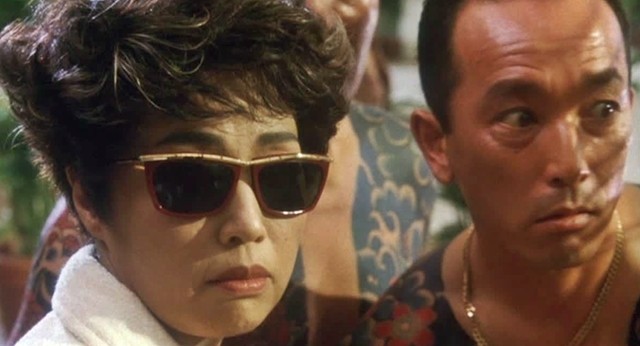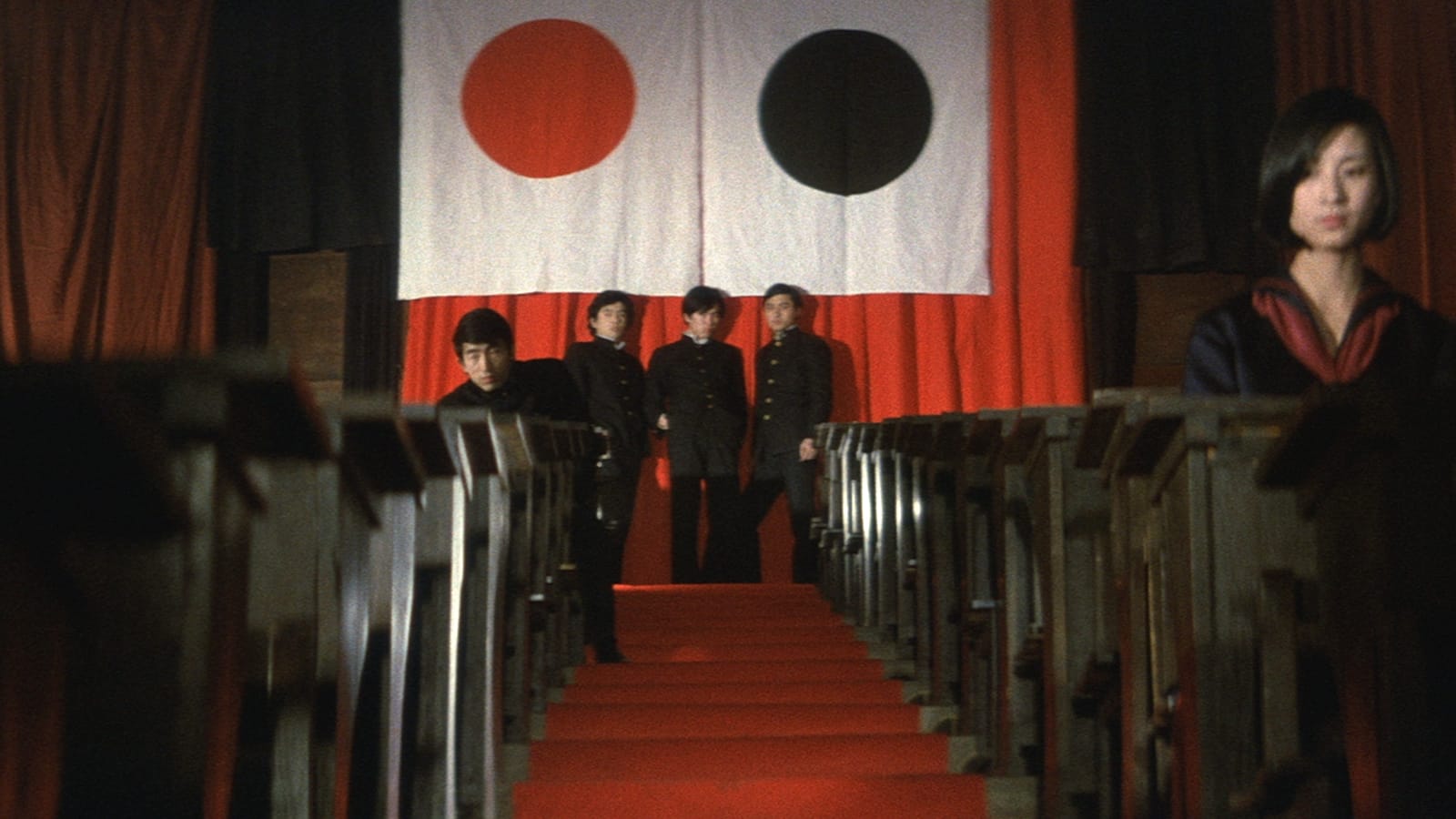6. Rubber’s Lover (1996)

In Rubber’s Lover a powerful corporation conducts experiments in an underground lab, that have to give psychic powers to test subjects. While under the influence of a drug, ether, the test subjects are put in rubber outfits and exposed to intense sounds. While the tests are usually successful in unleashing psychic powers in the test subjects, they’re also fatal. Since there is no success in non-fatal experimenting the lab is ordered to shut down, but in a desperate attempt to salvage their work, two scientists hold an innocent secretary hostage while they use a third scientist as their final test subject for the cruel experiments.
The film is a tense and graphic underground cyberpunk film, just like director Shozin Fukui’s previous more popular film: 964 Pinocchio. In its grim, industrial black & white setting, it could be compared to the equally intense Tetsuo movies. It’s a crazy, shocking, over-the-top film, like only the Japanese can pull it off. A high recommendation for every cyberpunk fan.
7. Typhoon Club (1985)

The story follows a bunch of students in the days before, during, and after a typhoon rages over their school. During their time bunked away in their school gymnasium, they get to know each other more intimately, and we get to be there alongside them, following their journey.
Typhoon Club is a very popular film in Japan, but overseas it’s not well known at all. It could be compared to a more popular movie that came out the same year… The Breakfast Club. Only these kids in Typhoon Club are not stuck inside because of their own doing, but because of mother nature. The other major difference is the cultural load that comes with this movie. Typhoon Club, as many films in this list, shows very much of Japanese culture, which could be too foreign for the broad western audience, but for the fan of Japanese cinema this shouldn’t be a problem; for them Typhoon Club is a must watch!
8. Kotoko (2011)

In the previous list we discussed a Shinya Tsukamoto film that could be considered a little different than his usual forte. As said Tsukamoto is best known for his psychological films that really succeed in getting under your skin and character studies that rely on experimental forms of filmmaking. Kotoko is the embodiment of this specific Tsukamoto style. Kotoko is unpleasant and unsettling in the best way possible.
Kotoko (Cocco) is a single mother suffering from double vision. While having terrifying hallucinations she tries to take care of her baby, but after a nervous breakdown she is deemed unfit to take care of her baby and it is taken away to Kotoko’s sister until she will be deemed fit again. The only light in Kotoko’s life she has when she sings. A novelist (Tsukamoto) overhears her singing whilst riding in the bus and the two develop an unstable relationship, constantly plagued by Kotoko’s hallucinations.
The film is based on an original story by J-pop artist Cocco, who stars in the film alongside Tsukamoto. Together they make a story that you will only watch once, since the harrowing nature is so much to take in. Even so, that first watch will be all you need since after watching it won’t leave your memory anytime soon.
9. Minbo: The Gentle Art of Japanese Extortion (1992)

Another Yakuza film as promised; this time one that takes an unusual approach to the often rough & tough portrayed men. Instead Juzo Itami chooses to portray them as obnoxious, loud bullies that extort and cheat the honest man.
In Minbo an old hotel gets frequent visits by the Yakuza, who extort the hotel for all its worth. Having enough of it, the staff calls in the help of Mahiru Inoue, a lawyer who’s an expert in dealing with Yakuza. Together with Mahiru the staff of the hotel starts to fight back against these bullies in the most hilarious ways.
In the last list we briefly touched upon Juzo Itami’s unfortunate encounter with the Yakuza. He decided to make The Last Dance following an experience in the hospital after he was stabbed by Yakuza for making this very film. In addition to this, his journey as a filmmaker came to an end way too soon as he passed away after possibly committing suicide, although there are speculations his dead was not self-initiated at all and instead the Yakuza had a say in this. It’s a shame Itami left us so early, since he had so much more to offer, but for what it’s worth; he left us with a great filmography, which you should definitely explore.
10. Sing a Song of Sex (1967)

Japan has countless of great directors to offer and Nagisa Oshima might be one of the best. His impressive filmography includes films like ‘In the Realm of the Senses,’ ‘Merry Christmas, Mr. Lawrence,’ ‘Taboo,’ and the incredible ‘Death by Hanging.’ His films are often loaded with political themes, ‘Sing a Song of Sex’ not being an exclusion.
The story follows four horny high school students that prepare for their university exams. When they meet up with one of their teachers, they join him in singing bawdy songs and getting drunk. The next day they find out that their teacher died an unfortunate death, while asleep drunk. We follow them the next few days, wherein they cope with their teacher’s death, their sexual frustrations, and their upcoming exams. This all accompanied by lots of singing at any chance they get.
While Sing a Song of Sex honors its name by singing lots of songs about sex, the most prominent themes are those of the Americanization of Japanese politics in the aftermath of the war. While nothing much happens, the themes are clearly read between the lines, making it a fantastic thinking piece that simultaneously manages to be a light coming-of-age film to get lost in.